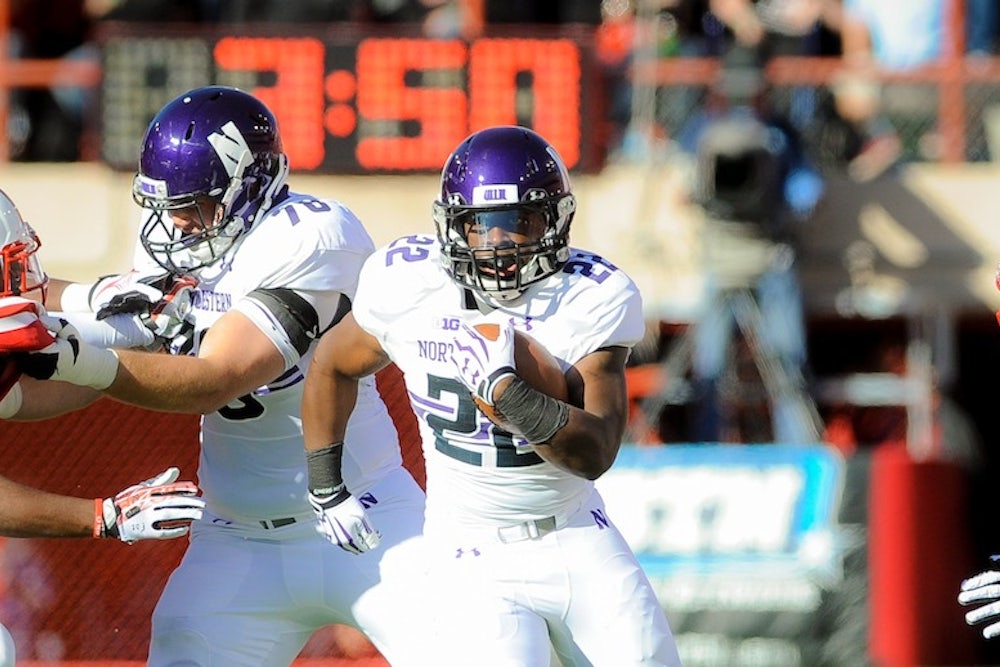For the first time ever, NCAA student-athletes—in this case, they’re also known as college football players—have sought National Labor Relations Board approval to start a union. On Tuesday, the National College Players Association, an advocacy group, filed the necessary forms on behalf of Northwestern University football players. They also filed union cards signed by an “overwhelming majority,” it said, of Northwestern’s players. Apparently, Northwestern’s quarterback (who else?) reached out to the group.
The gambit’s obvious target is the “student-athlete” notion—the dubious construct upon which the entire big-time college sports edifice rests. You can see that term’s contradictions heightened, as we say, in the response of the NCAA, the governing body of college athletics: ”This union-backed attempt to turn student-athletes into employees undermines the purpose of college: an education," said the organization’s chief legal officer. "Student-athletes are not employees, and their participation in college sports is voluntary. We stand for all student-athletes, not just those the unions want to professionalize.”
Let's take a close look. If the purpose of college is “an education,” then why in some cases do student-athletes have part or all of their tuition paid for on the explicit condition that they play sports? And if they are not professionals, then why the—what do you call it?—extracurricular activity that requires extensive travel, 40-plus hour weeks, and considerable risk to future earning potential? And if they are not being paid for that—if that tuition shouldn’t count as payment and their participation is in fact “voluntary”—then why allow that tuition to be offered in the first place? What is it even being offered for?
The legal practicalities are of secondary importance. (I am not an expert in labor law, but I would not be surprised if the students’ technical legal case is not strong.) The student-athlete concept is like a bruise—one more likely sustained not in the classroom but on the gridiron—and this move is like pressing really hard on it.
From a public-relations perspective, this move is a big deal. Northwestern isn’t anyone’s idea of a powerhouse, but it’s a Big Ten school. The players have the backing of United Steelworkers (which may seem inapposite, but recall that, say, graduate students in the University of California system and elsewhere are members of United Auto Workers). The students, led by quarterback Kain Colter, are smartly casting Northwestern not as a rapacious exploiter but as a “world-class university” which treats its “student-athletes” well, but nonetheless must follow the rules of the NCAA "dictatorship." In other words, the argument seems to be: If Northwestern athletes who receive scholarships deserve to unionize, think of the athletes elsewhere.
At least one outside group has weighed in: the National Football League Players Association—the NFL players’ union—has issued a statement of support.
For now, the players’ aims appear modest, more on the level of securing continued scholarships even if an injury makes a student-athlete physically unable to play, rather than giving students a cut of revenue. But there is no reason to think unionized players wouldn’t push for such a cut. “Players are not complaining about this arrangement," said United Steelworkers political director Tim Waters. “They're just calling it what it is—pay for play.” You know, like a job.
